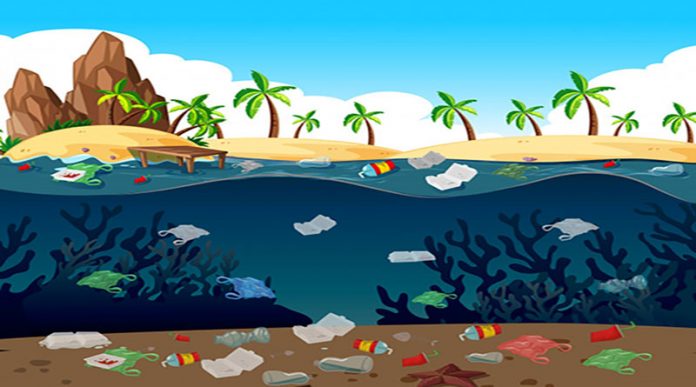By Aminath Ifasa
We are living in an Anthropocene, a geological epoch that has changed the physical structure of the earth. Our planet is increasingly being influenced by human actions. It is not just an environmental decay we’ve found ourselves in but also a greed-driven epistemology. We have over exploited the earth and pushed it to succumb to our needs. The world has been maneuvered to a point where it cannot replenish itself.
This is an unnatural period in history. We have an unprecedented turbulent relationship with nature. We must learn to accept that we have led ourselves to a pathway that could potentially lead to a disastrous climax. Humans have been in an exulted state since the first attempt to climb the ladder of progress. However, we have lost ourselves in a dangerous spiral. We are now fighting against nature in an attempt to overtake it. We have asserted our authority over it, knowingly or unknowingly, and if we do not take a few steps back, we will find ourselves losing an unwinnable and irremediable war. There are two ways in which we could etch ourselves into history following this epoch. First: as the most powerful species on earth, we have to take responsibility for altering the course of nature by turning it around. Second: we have to avoid leaving a legacy of mass extinction under the genus of ‘Homo’. Dinosaurs did not assume responsibility over their extinction but we have to.
Our downfall began during the much-romanticized Enlightenment era. Even though we as a species achieved tremendous progress during this time period, in the definition of “progress” lies a contradiction. Progress should essentially mean a better quality of life but have we stretched our abilities to a point where it has started to backfire on us? The western man’s ideal progress was based on industrialization and was capitalistic instead of being an aspiration for the goodness of humankind.
It was during the Enlightenment era that the West went through the Copernicus Revolution. Even though this era is a remarkable time in the history of human development, it induced a sense of psychotic greed of authority in man. Humans felt the need to conquer the world and nature was a pawn. The Copernicus Revolution proved against the teachings of the Roman Catholic Church that the universe is heliocentric. Even though this was a revolutionary mark in the field of science, which philosopher Hans Blumberg described as “self-assertion,” which in turn led to the “triumph of theoretical curiosity.” This self-assertion that man gained from the achievement of having the power to go against the authority was not just an expression of secular thoughts but it forged itself to reveal the “yang” in him. It was an instrumental rationality that cultivated the “triumph of theoretical curiosity.” The curiosity manifested itself like venom and brainwashed humans into believing that they are the ultimate authority.
Philosopher Francis Bacon, a famous figure during 17th century Renaissance who advocated the scientific progress of humanity, was the father of scientific experiments. He stated that humans have “dominion over nature.” This was the foundation of “modern progress.” Bacon added “my only earthly wish is… to stretch the deplorably narrow limits of man’s dominion over the universe to their promised bounds… [nature will be] bound into service, hounded in her wanderings and put on the rack and tortured for her secrets.” This is a rape metaphor. Bacon’s philosophy, which is the bases of all scientific expeditions, is an exposé of the patriarchal mindset of modern man but was veiled under terms such as “enlightenment” and “progress.”
According to British geologist Jan Zalasiewicz, we are far past the Holocene epoch. He said in an interview with The Guardian that the Anthropocene is “functionally and stratigraphically distinct” from the Holocene. It is officially part of a geological timescale. This self-destructive expedition of humankind is happening at a rapid pace and without the acceptance of the situation, us as a species cannot help ourselves in escaping the upcoming catastrophe. If human beings were liberal enough to revolt against the greatest authority during the Renaissance, they must be liberal enough to respect nature and live in harmony with it. We have to stop abusing nature.


















